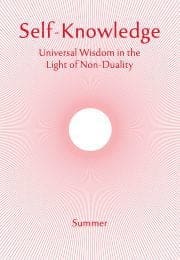No Friends or Enemies
The Thousand Teachings of Shankara, Prose Part, Section Three
We want to be free. What is freedom and how to achieve it? True freedom is more than political or economic freedom. It is freedom from all the limitations imposed on us by the workings of the law of cause and effect. Ultimate freedom means being free of all the effects of past causes and not accruing new ones. How to do this? Shri Shankara writes:
Ignorance causes imperfections, which cause us to make efforts to overcome them. These efforts are the causes of more results. [from The Thousand Teachings, Prose Part, Section Three, Paragraph 112]
Here, ‘making efforts’ means doing something with the intention of bringing about a result, together with attachment to that result. It is this attachment that binds us to the process of cause and effect, not the action in itself. The motive for action with attachment to the results is a sense of imperfection and the conviction that we need something to overcome that imperfection. Desire is the wish to overcome a need, an imperfection. And the sense of imperfection is rooted in ignorance, in not knowing our true Self, which is untouched by any need or imperfection.
There is a popular view that human bondage consists in an endless cycle of birth and death from which one must escape. Here Shankara makes clear that the essential need is to overcome ignorance of Self, and that action is a problem only in so far as action reinforces the wrong view that the individualised doer of action is the Self, which happens when there is attachment to the results of action. The binding effects of action and how to be free of them is a central teaching of the Bhagavad Gita also. In the Thousand Teachings, Shankara shows logically how the problem is ignorance of Self and that the only solution is Self-knowledge.
He continues by reminding us that sense objects are not conscious in themselves; they have no knowledge of themselves or each other.
Subscribe or enrol for free guest access to read all of this article and Self-Knowledge online.
Already subscribed or enrolled? Log in:


